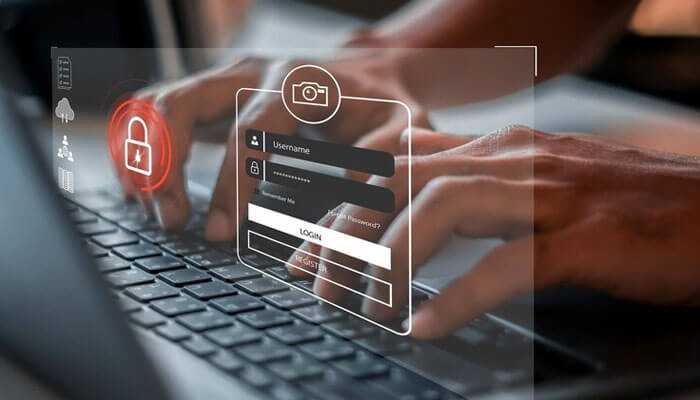In today’s digital landscape, where cyber threats loom large, organizations across various industries are recognizing the importance of bolstering their security measures. Multi-factor authentication (MFA) has risen as a vital component in safeguarding user access, providing an additional layer of defense beyond traditional username and password combinations. As attackers employ more sophisticated techniques, next-generation multi-factor authentication solutions offer enhanced security features, such as passwordless authentication, which protects against unauthorized access while simplifying the user experience.
Industries such as finance, healthcare, and government, in particular, have seen a significant uptake in MFA to protect sensitive data. Financial institutions implement MFA to comply with stringent regulatory demands and to prevent fraud, while healthcare organizations use MFA to secure patient information in compliance with privacy laws. Government entities tasked with safeguarding national security and citizen data also rely on advanced authentication methods to mitigate risks. Each industry benefits from MFA’s ability to verify users’ identities through multiple verification factors, which is crucial for remote authentication and physical access control.
As cyber risks evolve, the integration of next-generation MFA within organizational security strategies is becoming more prevalent. Advanced MFA systems are increasingly leveraging biometric data, hardware tokens, and behavioral analytics to ensure that only authorized users gain access, thus maintaining the integrity of digital systems. Through these sophisticated strategies, multi-factor authentication continues to stand as an essential pillar of modern cybersecurity defense.
Advancements in Multi-Factor Authentication Technology
As industries face growing cyber threats, advancements in Multi-Factor Authentication (MFA) technology offer robust security solutions anchored on multiple verification factors. This is essential in protecting sensitive data and systems across various sectors.
The Evolution of MFA and Emerging Technologies
The MFA landscape has evolved significantly, with emerging technologies enhancing security and user convenience. These standards allow users to leverage common devices as authenticators, facilitating a more natural and secure login process.
Integrating Multi-Factor Authentication in Mobile and Web Applications
MFA integration in mobile and web applications is becoming seamless, with authenticator apps and in-built smartphone features serving as key factors. For instance, a smartphone can act as a security key, and mobile apps can send push notifications for one-tap approval, drastically decreasing the friction of traditional authentication methods.
Biometric Authentication: Beyond Passwords
Biometric authentication leverages unique human characteristics to enhance security. Methods such as facial recognition and fingerprint scanning are becoming commonplace. This biometric authentication bypasses the vulnerabilities of password-only systems, allowing for a more secure yet convenient user experience by integrating these technologies directly into smartphones and other personal devices.
Best Practices for Implementing Multi-Factor Authentication in Industries
When implementing Multi-Factor Authentication (MFA) across different industries, organizations should focus on enhancing security while ensuring user-friendliness, catering to sector-specific requirements, and aligning with legal compliance and data protection standards.
Balancing Security with User Convenience
Incorporating MFA should not compromise the user experience. Two-factor authentication (2FA), for instance, offers a layer of security but should be implemented in a way that minimizes friction. Techniques like Single Sign-On (SSO) paired with MFA can streamline login processes while maintaining security. Avoid relying solely on SMS as it can be susceptible to phishing attacks; instead, consider using a security token or app-based method that can offer both robust security and ease of use.
Customizing Multi-Factor Authentication for Sector-Specific Needs
Different industries face unique security threats and thus require tailored MFA approaches. For sectors dealing with highly sensitive data, such as finance or healthcare, hardware security tokens may be more appropriate due to their resistance to remote theft. Industries with frequent data breaches can benefit from adaptive MFA, which introduces additional security layers based on the risk assessment of the login attempt. This allows for a more dynamic defense that is tough on unauthorized access while remaining user-friendly for legitimate users.
Ensuring Regulatory Compliance and Data Protection
Adherence to regulatory compliance and data protection laws is critical for industries implementing MFA. Regulations often delineate specific compliance requirements for safeguarding sensitive information. MFA serves as a pivotal control to protect against unauthorized access to the corporate network and data. Organizations must understand and abide by applicable regulations, such as GDPR, HIPAA, or SOX, to avoid penalties and reinforce trust by protecting consumer and employee information from potential security breaches.
Conclusion
Multi-factor authentication (MFA) stands as a critical security measure across various industries, mitigating the risks associated with cyber threats. Organizations within sectors that deal with sensitive data, such as healthcare, financial services, and government, receive pronounced benefits from implementing advanced MFA solutions. These systems bolster the protection of digital assets and help ensure compliance with regulatory requirements while enhancing overall user trust and confidence in the security protocols adopted. The adoption of next-generation MFA technologies thus represents a strategic investment towards fortifying digital infrastructures in an increasingly interconnected world.




